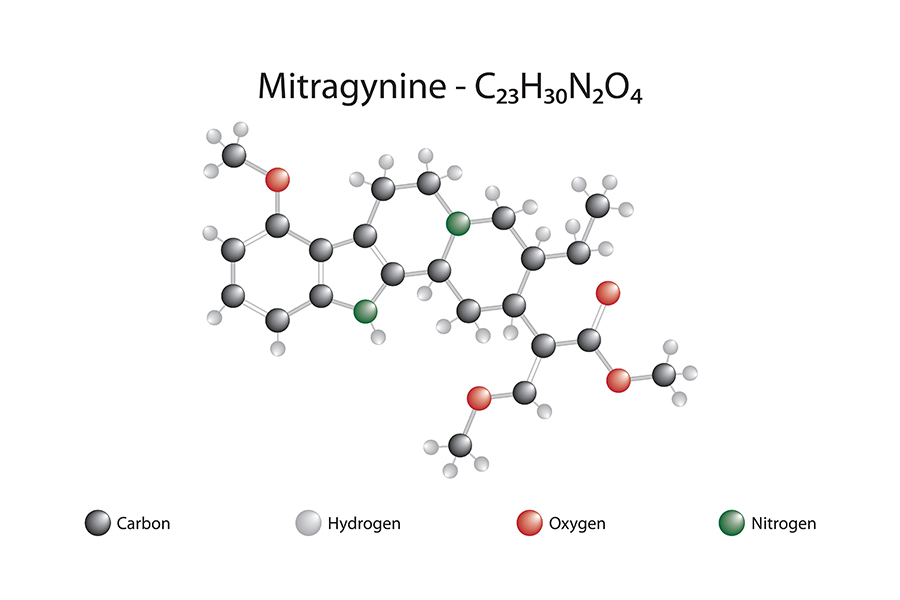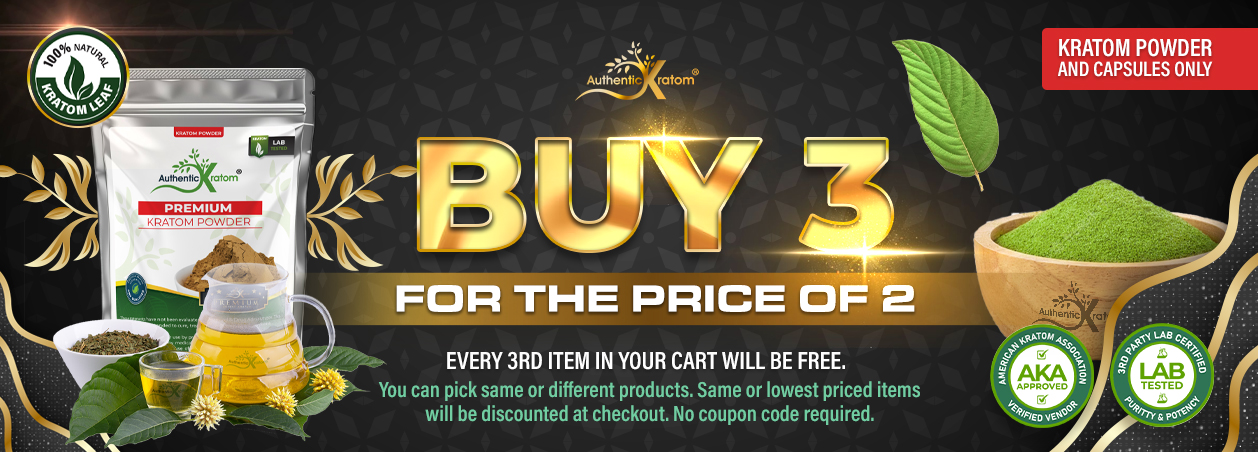

Kratom And Your System
It can speed you up or wind you down. It will help you feel more productive at work or allow you to take a relaxing break from the never-ending chores. In fact, with kratom and your system the impact is just as varied as its users themselves.
Truth be told, Kratom is a mysterious herb wrapped in an enigma! No wonder Kratom formed an inevitable part of folk medicine and socio-religious rituals for centuries in Southeast Asia. And, its use gained momentum in the West only recently. As more and more information becomes publicized, one of the most frequently asked questions is how long it will take for the Speciosa effects to surface and eventually subside.
Therefore, this article intends to cover all the essential aspects of Kratom's Impact.
What Are The Effects Of Kratom On Your System?
Kratom is a unique herb with its constituent alkaloids featuring dose-dependent impact, i.e., variations in the intake will lend the opposite effect.
Following, we have highlighted the two signature after-effects:
Stimulating Effect At Lower Doses
Wish to kick-start your day with a burst of energy? Kratom marks a wonderful beginning to your morning with a positive note to help you cope with the hectic day ahead. It forms a perfect cognitive booster that will lend you just the mood enhancement you need. Your blurred mind will instantly witness an impressive jump in alertness and concentration - making you more sociable and talkative.
Sedation And Analgesic Impact At Higher Doses
Now say goodbye to the sleepless nights or an over-processed brain with feelings of pleasure, peace, and tranquility overtaking your soul.
Kratom is an ideal choice for those who wish to relax their body and mind after an exhausting day with calming sensation setting in. Users will enter into a pleasant "dreamy-reverie" or, in other words, a mixed state of "waking-dreaming" with their minds wandering in their dreamland and heart in the real world.
Besides the above two, large Kratom intake also bags some unwanted side effects such as nausea, vomiting, diarrhea, perspiration, reduced appetite, frequent urination, or weight loss.
How Does Kratom Work On Your System?
Kratom interacts with all our vital body organs in distinct ways. However, the two most prominent effects are felt on the brain and the Central Nervous System (CNS).
There are several clinical trials devoted to studying the impact in depth. For instance, a 2016 New York Study closely examined and monitored the impact of Mitragynine and 7-hydroxy mitragynine, the two key Kratom alkaloids. The results concluded that both these alkaloids have a mild affinity towards receptors in the brain resulting in stimulation or sedation.
Likewise, there is a stark resemblance to the way Kratom reacts with the CNS. For instance, the findings of a 2019 Study by Midwestern University supported the claim in words, "It is notable that Kratom can cause herb–drug interactions, especially with other central nervous system-active substances."
As it turns out, both Mitragynine and 7-hydroxy mitragynine have an affinity toward various CNS receptors. This explains why Kratom induces sleep, analgesia, and sedation and was thereby deemed a popular natural remedy in ancient medicine for hundreds of years.
According to the famous textbook, Kratom and Other Mitragynines: The Chemistry and Pharmacology, “when taken at lower doses, Mitragynine has effects similar to central nervous system stimulants like caffeine and methylphenidate."


The Half-Life of Kratom
Half-Life is the time duration a drug takes to reduce or eliminate its plasma concentration by half. Or, in simpler words, it reflects the amount of time our body's metabolic organs, such as the liver, require to break it down.
So, for instance, a 50 mg drug has a half-life of 30 minutes, then it would take 30 minutes to reduce it to 25 mg, an hour to go down to 12.5 mg, and so on. Generally, it is believed a drug takes 5 to 6 half-lives before it completely eradicates from the system under most conditions.
The concept was invented and largely referred to for drug screening. Hence, it is worth knowing when a drug will remain in our system and possibly show on the drug test.
In the case of Kratom, pharmacological studies are still underway. So far, there exists no formal research on Kratom that can conclusively determine its half-life as most of the studies conducted are on animal models such as a 2010 Malaysian Study "Determination of Mitragynine in plasma with solid-phase extraction and rapid HPLC-UV analysis, and its application to a pharmacokinetic study in rat."
Therefore, there are contradicting claims on its half-life. For example, a 2015 study, Pharmacokinetics of Mitragynine in man conducted by the Mahidol University in Bangkok, Thailand, reported its half-life to be approximately 3.85 (±0.51 hours) hours.
The findings also revealed that Mitragynine, the primary alkaloid in Kratom, features a terminal half-life of 23 to 24 hours. This implies that our system will take a whole good day to get rid of just 50% of our Kratom intake.
Another 2016 study concluded half-life to be 9.43 hours (±1.74 hours). Besides, it also inferred that numerous variables might impact this rate. For instance, method of use and frequency of consumption.
When injected, the half-life would be 2.9 hours (±2.1 hours), whereas, in oral ingestion, the rate would go up to 6.6 hours (±1.3 hours). Likewise, less frequent or new users will likely have a shorter elimination span than habitual and long-term users.
To sum it up, total elimination will consume two days at the faster end, while at the lower end of the spectrum, it would require nine days.
What Is The Duration Of Kratom's Effects On Your System?
Powder And Crushed Leaves
At Low Doses: According to the European Monitoring Centre for Drugs and Drug Addiction (EMCDDA), a small dose of 1 to 5 grams will predominate stimulating impact that can be felt within 10 to 15 minutes of intake and lasts for up to one to two hours (60 to 90 minutes on average). The peak effect is most likely to surface within 30 minutes.
At Mild/Moderate Doses: If you happen to consume 3 to 5 grams of Kratom, the impact will begin 15 to 20 minutes later and can be enjoyed till 4 to 5 hours, with the peak occurring after an hour.
At High Doses: At stronger doses of 5 to 7 grams, the onset of the impact happens within 15 to 20 minutes and lasts as long as 8 hours. The peak effect can be experienced between 1.5 to 2.5 hours.
Pro Tip: You can experience even heightened effects if you take Kratom on an empty stomach, as having Kratom after meals will delay its absorption.
Capsules
If your brother, neighbor, or friend ever told you that Kratom capsules delay the impact, then you gotta believe them. It takes slightly longer for the effects of a kratom pill to take hold as the shell must first dissolve in the stomach before the powder inside is released and absorbed by the bloodstream.
This delays the impact by just 15 to 20 minutes. So, on average, a capsule takes 25 to 40 minutes. Again, having food before or right after a capsule will delay the result. Therefore, it is advised to swallow it either 45 minutes before a meal or 1.5 hours after.
Pro-Tip: For best results, gulp your capsule down with a refreshing glass of any citrus juice such as lemon, orange, or grapefruit.
Extracts And Tinctures
Kratom extracts and tinctures are the most potent kratom supplement form. As such, their effects are typically experienced almost immediately within 5 to 10 minutes of ingestion and can last as long as 10 hours, depending on the dose. After an hour, the peak effect will take place and can be enjoyed for 3 hours with a gradual fade to follow.
Factors Influencing Kratom's Impact Your System
Just like any other drug, certain variables dictate Kratom's performance, reaction, and elimination rate. So, let's take a look at some of the most influential factors at play:
Body, Weight, and Fat
Do you know a person's weight and body fat percentage essentially determines how long a drug can sustain in our system? Plus, Mitragynine is fat-soluble. Therefore it would take time for bulkier individuals to get rid of it compared to those with less weight.
Amount of Kratom Intake
This one goes without saying. A larger dosage of any drug would remain in the system for a longer period.
User's Age
Age plays a pivotal role in our body's effective functionality. For instance, older individuals over 65 tend to have a slower metabolism than youngsters owing to physical changes, renal functions, and other medical complications. Consequently, the metabolism of Kratom is faster in young people.
Usage
This is perhaps by far the most dominating player. The way you ingest Kratom means everything. For example, having Kratom on a full stomach or before a meal will delay the impact more than when consumed on an empty one.
Likewise, if you plan to combine Kratom with alcohol or tea, the elimination process will extend as the liver metabolizes alcohol and tea before any other substance. Similarly, consuming high-fat meals alongside Kratom also helps in its fast absorption and enables one to reach the highest concentration level quickly.
Other Medical Conditions
The health and well-being of an individual are yet another vital determinant. An underlying medical condition such as cirrhosis can affect the liver and the metabolism rate, disrupt renal functions and fluctuate the pH of urine - thereby delaying the excretion of Kratom from our system.
Genetics
The speed at which Kratom would discard greatly depends on your genes and the enzymes produced by the body.
Water Intake
Finally, staying well hydrated and drinking plenty of water will prompt fast excretion of Kratom via urine.
Final Thoughts
Though legal at the Federal Level, Kratom's use is not regulated by the FDA. It is not declared a traditional medicine, and no specific guidelines are governing its use.
One question pinching most users' heads is whether Kratom is detectable in the drug screening. So, people are intrigued to know the time span it says in the systems has everything to do with passing the test rather than merely seeking knowledge.
The half-life of Kratom is believed to hover between 2 hours to 24 hours, and so the shortest time a kratom dose will take to eliminate from the system entirely is one day, while the longest is nine days.
In addition, the effects will surface between 5 to 30 minutes of ingestion and last for as long as 8 hours, depending on the dose. That said, several other factors impact both the half-life and the onset of its effect duration.
Article Reviewed & Approved by Abdullah Mamun



